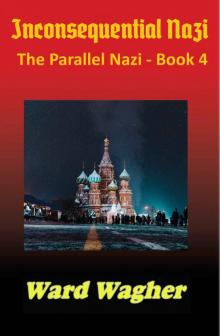 The Mountains of Montora (The Chronicles of Montora Book 1)
The Mountains of Montora (The Chronicles of Montora Book 1) Nazi Magician: Inventor
Nazi Magician: Inventor The Last Paladin
The Last Paladin Inconsequential Nazi
Inconsequential Nazi Impossible Nazi
Impossible Nazi The Snows of Montora (The Chronicles of Montora Book 3)
The Snows of Montora (The Chronicles of Montora Book 3) The Margrave of Montora (The Chronicles of Montora Book 2)
The Margrave of Montora (The Chronicles of Montora Book 2) Gravity Rising (The Parallel Multiverse Book 2)
Gravity Rising (The Parallel Multiverse Book 2) ruBracks, Nazis, the Death of the Universe & Everything (The Parallel-Multiverse Book 1)
ruBracks, Nazis, the Death of the Universe & Everything (The Parallel-Multiverse Book 1) Improbable Nazi (Parallel Nazi Book 2)
Improbable Nazi (Parallel Nazi Book 2) Accidental Nazi
Accidental Nazi Improbable Nazi
Improbable Nazi